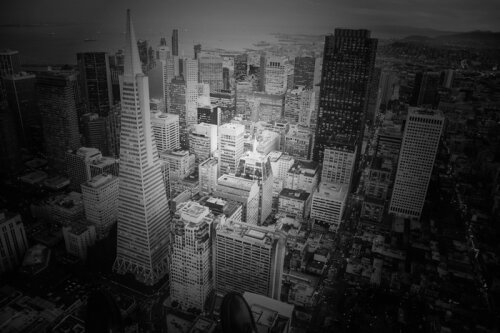Best Native People Lawyers in Atibaia
Share your needs with us, get contacted by law firms.
Free. Takes 2 min.
List of the best lawyers in Atibaia, Brazil
About Native People Law in Atibaia, Brazil
Atibaia, located in the state of São Paulo, is home to a diverse community, including people of Indigenous descent. Native People (known officially as "Povos Indígenas") in Atibaia and throughout Brazil have unique rights and legal status, which are protected under Brazilian federal law, including the Constitution of 1988. These laws recognize Native People's rights to their traditional lands, cultural preservation, autonomy, and access to distinct healthcare and education systems. While Atibaia does not have large official Indigenous reserves within its territory, Indigenous people living, working, or passing through Atibaia benefit from the country's broader Indigenous legal protections.
Why You May Need a Lawyer
There are several situations in which Indigenous individuals, families, or communities in Atibaia may need legal advice or representation. These situations can include:
- Ensuring recognition and enforcement of land rights, especially if disputes or encroachment issues arise.
- Protecting the right to practice and promote Indigenous cultural, religious, and linguistic traditions.
- Dealing with government agencies related to health, education, or social benefits specifically for Indigenous populations.
- Pursuing claims for discrimination or violation of civil rights in employment, housing, or public services.
- Facilitating the official recognition of Indigenous groups or associations within Atibaia.
- Navigating rules and documents regarding the legal status of Indigenous individuals who have migrated to urban areas.
- Defending against criminal or civil charges with respect to Indigenous legal customs and unique circumstances.
A lawyer experienced in Native People law will know how to address these issues, ensuring rights are respected and providing guidance within the correct legal framework.
Local Laws Overview
In Atibaia, like the rest of Brazil, Indigenous rights are primarily regulated by national legislation. The most important laws and regulations include:
- The Federal Constitution of 1988, which recognizes Native People’s social organization, customs, languages, beliefs, and their rights to ancestral lands.
- Federal Law No. 6.001/1973 (Statute of the Indian), which details protections and rights of Indigenous people in Brazil.
- Regulations from the National Indian Foundation (FUNAI), which manages Indigenous policies, land matters, and cultural heritage.
Locally, Atibaia complies with these national norms and may coordinate with FUNAI or state-level bodies to address specific cases. While Atibaia itself does not have laws exclusive to Indigenous people, its government and judicial authorities are required to respect all applicable federal rights. Issues such as access to locally administered public schools, healthcare services, or social programs for Indigenous people are managed according to federal rules, often with local adjustments or guidance.
Frequently Asked Questions
How are Native People legally recognized in Brazil and Atibaia?
Indigenous people are officially recognized by the Brazilian state through self-identification and collective recognition. This legal status extends to anyone belonging to an Indigenous community, regardless of their location, including those in Atibaia.
What are the primary rights of Indigenous people under Brazilian law?
Primary rights include land rights to ancestral territories, cultural preservation, traditional knowledge protection, self-organization, and differentiated access to health and education.
Does Atibaia have any officially recognized Indigenous reserves?
No, there are currently no officially recognized Indigenous reserves within Atibaia, but Indigenous individuals and families residing in the area have full legal rights under federal law.
How can Indigenous people in Atibaia access culturally sensitive healthcare and education?
They can request differentiated services at public institutions. The federal government operates special programs (such as SESAI for health) that may extend to local populations.
What role does FUNAI play in Atibaia?
FUNAI provides administrative support, defends Indigenous rights, and mediates land or cultural issues involving Indigenous people in the region.
Can non-Indigenous people use or occupy Indigenous lands?
No, only Indigenous communities have rights to use and occupy their traditional lands, with strict legal controls enforced by federal authorities.
What should I do if I face discrimination as an Indigenous person in Atibaia?
Report the incident to local authorities, and seek legal advice. Brazilian law prohibits discrimination, and you may file complaints with the Public Prosecutor or seek assistance from NGOs.
Are there specific legal aid services for Indigenous people?
Yes, Brazil offers public legal defense services (Defensoria Pública) with staff knowledgeable in Indigenous rights. Some NGOs and FUNAI also provide legal support.
How can I prove my Indigenous identity legally?
Through self-declaration and recognition by the community. Official certificates may be issued by FUNAI or Indigenous organizations if needed for public services.
Can Indigenous communities form associations or cultural groups in Atibaia?
Yes, Indigenous associations can be formed and registered, which helps in accessing benefits and defending collective rights.
Additional Resources
If you are seeking legal advice or support regarding Native People issues in Atibaia, the following resources may be helpful:
- FUNAI (Fundação Nacional dos Povos Indígenas): The federal agency for Indigenous affairs, providing guidance, information, and legal support.
- Defensoria Pública (Public Defender’s Office): Free public legal aid, with staff knowledgeable about Indigenous law.
- Public Prosecutor’s Office (Ministério Público): Receives complaints of rights violations and may investigate or represent Indigenous interests.
- Local Indigenous Associations or Cultural Groups: These can offer community support, cultural advocacy, and often have connections with legal professionals.
- Human Rights NGOs: Organizations such as CIMI (Conselho Indigenista Missionário) and ISA (Instituto Socioambiental) frequently assist with Indigenous legal issues.
Next Steps
If you believe you need legal assistance in matters related to Indigenous rights or interests in Atibaia, consider the following steps:
- Clarify the issue or situation for which you need legal help, and gather any relevant documents or information.
- Reach out to FUNAI or the Defensoria Pública for orientation or free legal advice.
- If you are part of an Indigenous association, consult their leaders or legal representatives first.
- If the issue concerns discrimination or urgent rights violations, contact the Public Prosecutor’s Office or a trusted human rights NGO promptly.
- If you prefer, seek a private lawyer who has experience with Native People’s law in Brazil and is familiar with the realities of Atibaia.
- Stay informed about your rights and legal options. Legal professionals can help you understand the best course of action and advocate for your interests effectively.
Taking these steps will help ensure your rights are protected and any legal concerns are addressed according to established law and procedure in Brazil.
Lawzana helps you find the best lawyers and law firms in Atibaia through a curated and pre-screened list of qualified legal professionals. Our platform offers rankings and detailed profiles of attorneys and law firms, allowing you to compare based on practice areas, including Native People, experience, and client feedback.
Each profile includes a description of the firm's areas of practice, client reviews, team members and partners, year of establishment, spoken languages, office locations, contact information, social media presence, and any published articles or resources. Most firms on our platform speak English and are experienced in both local and international legal matters.
Get a quote from top-rated law firms in Atibaia, Brazil — quickly, securely, and without unnecessary hassle.
Disclaimer:
The information provided on this page is for general informational purposes only and does not constitute legal advice. While we strive to ensure the accuracy and relevance of the content, legal information may change over time, and interpretations of the law can vary. You should always consult with a qualified legal professional for advice specific to your situation.
We disclaim all liability for actions taken or not taken based on the content of this page. If you believe any information is incorrect or outdated, please contact us, and we will review and update it where appropriate.









